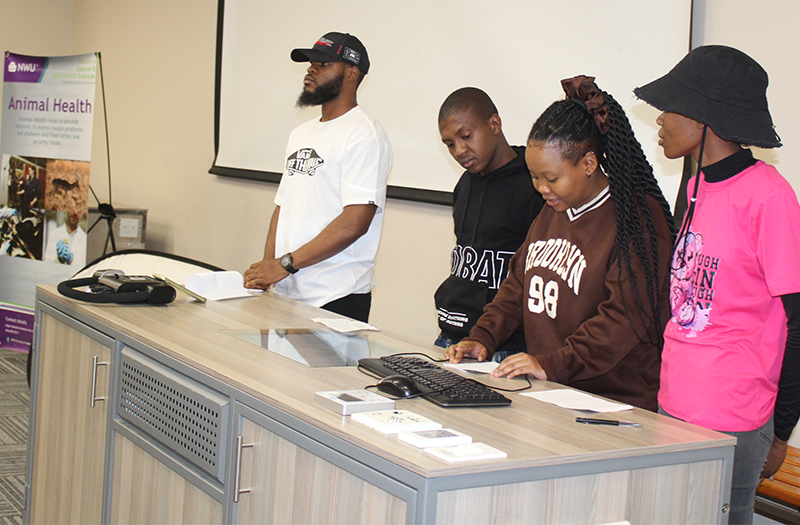By Gofaone Motsamai
Instead of focusing on formal employment when they graduate, final-year animal health science students at the North-West University (NWU) are tapping into their entrepreneurial spirit to explore ways to generate an income.
As part of a specialised entrepreneurship module, students from the School of Agricultural Sciences showcased their innovative business proposals at a pitching session on 15 November.
The session marked a significant step in bridging theoretical learning and practical application. It attracted representatives from the National Youth Development Agency, Nedbank, the Small Enterprise Development Agency, the Mmabana Arts, Culture and Sports Foundation, and local entrepreneurs.
These stakeholders evaluated the students’ pitches and explored potential funding opportunities for their ventures.
Four minutes to pitch
Each student group had four minutes to present their proposals, covering essential aspects such as situational analysis, financial viability and market potential. This format tested their ability to communicate complex ideas concisely, demonstrating the NWU’s commitment to promoting entrepreneurship as a sustainable career path in the agricultural sector.
Nthabiseng Kgobokoe, a lecturer who facilitates the Entrepreneurship module, outlined its purpose. “The intention of this module is to provide students with skills that will enable them to generate an income. It’s about shifting from a mindset of needing employment to considering the opportunities available in agriculture.”
She explained that the module was not limited to animal health and encouraged students to explore various agricultural fields, including feed production, egg packaging and making fishnets. These projects highlighted the sector’s vast potential for innovation.
Navigating real-world challenges
Nthabiseng also described the real-world challenges students encountered, such as navigating the business registration process with the Companies and Intellectual Property Commission and understanding tax compliance through the South African Revenue Service.
“They learned that what’s on paper and what happens in practice can be very different. These students are now entrepreneurs and business owners, aligning their enterprises with institutions that can take them to the next step,” she added.
As part of their coursework, students were tasked with raising R3 000 per entity, which covered branding, finance and the development of business plans. Their projects ranged from producing agricultural equipment to value-added packaging of farm produce.
Nthabiseng highlighted the critical role of partnerships with organisations such as the NYDA and Nedbank in supporting student entrepreneurs. “Our role is to create a conducive environment for start-ups. We then involve stakeholders who can assist with marketing these enterprises and aligning them with financial support. By next year, we hope to have the infrastructure to incubate these businesses, ensuring their progression and growth.”

A group of final-year animal health science students pitch their proposal.
